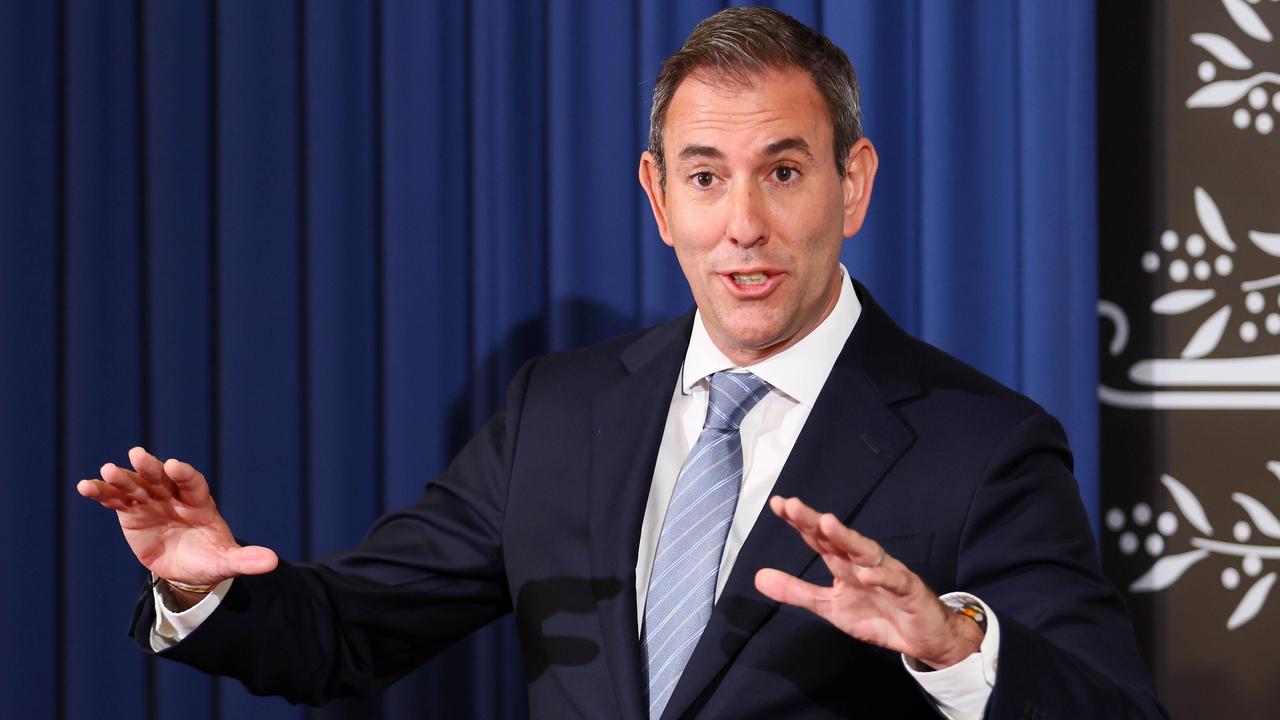LIVE
Live coverage of the 2017 Federal Budget delivered in Canberra
SCOTT Morrison’s surprise $6.2b levy on big banks has sparked anger among banking groups, as they claimed most Australian workers will pay higher taxes for it.
TREASURER Scott Morrison has delivered his “honest” 2017 Federal Budget.
His surprise $6.2b levy on big banks has sparked anger among banking groups, as they claimed most Australian workers will pay higher taxes for it from 2019. The Turnbull government is targeting them as it seeks to pay for disability insurance and balance the books. The Opposition will support a levy on big five banks, which will raise $6.2 billion over four years for budget repair. The big four banks of Westpac, ANZ, Commonwealth Bank and National Australia Bank, plus Macquarie Group are hit by the levy. But Australia’s Banking Association CEO Anna Bligh says that every Australian will have to pay for Mr Morrison’s levy on the banks. She said there had been no consultation with the industry ahead of the shock move. “This new tax is not a well thought out policy response to a public interest issue, it is a political tax grab to cover a budget black hole,” she added. Many have also attacked the Budget for being more “Labor-like”, and Sky News commentator and former chief of staff to Tony Abbott, Peta Credlin, said that the “Coalition base will be pretty upset” with Mr Morrison, who delivered a “Labor, tax and spend Budget”. She said the Budget was more about raising their Newspoll results, and did not contain “smart policy”. Ms Credlin said that while it may give them a “sugar hit in the Newspoll” it will be seen as a movement away from what their voters’ core traditional beliefs are. The 2017/18 Budget projects a return to balance in 2020/21, improving from a deficit of $29.4 billion to a projected surplus of $7.4 billion within four years. A 0.5 percentage point rise in the Medicare levy from mid-2019 will cost a worker on $80,000 about $400 extra a year to fund the national disability insurance scheme. Labor immediately described it as a tax hit to workers, while the highest income earners were relieved of the deficit levy in the budget, but the opposition will consider supporting the rise. In a bid to reset the “Mediscare” debate, the coalition will gradually lift the freeze on the indexation of the Medicare Benefits Schedule and reverse the removal of the bulk-billing incentive for X-rays and and pathology services and the increase in the PBS co-payment and related changes. This comes at a cost of $2.2 billion over four years. A new schools funding plan announced last week was confirmed, costing an extra $18.6 billion over the next 10 years. First home buyers will be able to save for a deposit by salary sacrificing into their superannuation account over and above their compulsory superannuation contribution from July 1. Economic growth of 2.75 per cent in 2017/18 is expected to be driven by a rise in household consumption, non-mining business investment and exports. The jobless rate is set to ease from 5.75 per cent this year to 5.25 per cent in 2020/21. See how the Budget unfolded in our coverage below:
Originally published as Live coverage of the 2017 Federal Budget delivered in Canberra


